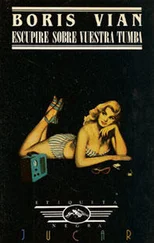Danilo Kis - Tomb for Boris Davidovich
Здесь есть возможность читать онлайн «Danilo Kis - Tomb for Boris Davidovich» весь текст электронной книги совершенно бесплатно (целиком полную версию без сокращений). В некоторых случаях можно слушать аудио, скачать через торрент в формате fb2 и присутствует краткое содержание. Год выпуска: 2001, Издательство: Dalkey Archive Press, Жанр: Современная проза, на английском языке. Описание произведения, (предисловие) а так же отзывы посетителей доступны на портале библиотеки ЛибКат.
- Название:Tomb for Boris Davidovich
- Автор:
- Издательство:Dalkey Archive Press
- Жанр:
- Год:2001
- ISBN:нет данных
- Рейтинг книги:4 / 5. Голосов: 1
-
Избранное:Добавить в избранное
- Отзывы:
-
Ваша оценка:
- 80
- 1
- 2
- 3
- 4
- 5
Tomb for Boris Davidovich: краткое содержание, описание и аннотация
Предлагаем к чтению аннотацию, описание, краткое содержание или предисловие (зависит от того, что написал сам автор книги «Tomb for Boris Davidovich»). Если вы не нашли необходимую информацию о книге — напишите в комментариях, мы постараемся отыскать её.
Tomb for Boris Davidovich — читать онлайн бесплатно полную книгу (весь текст) целиком
Ниже представлен текст книги, разбитый по страницам. Система сохранения места последней прочитанной страницы, позволяет с удобством читать онлайн бесплатно книгу «Tomb for Boris Davidovich», без необходимости каждый раз заново искать на чём Вы остановились. Поставьте закладку, и сможете в любой момент перейти на страницу, на которой закончили чтение.
Интервал:
Закладка:
In the archives of the Czar's secret police, the Okhrana, three birth dates are entered: 1891, 1893, 1896. This was not just the result of the false documents revolutionaries used (a few coins to die clerk or the priest, and the matter was taken care of); it was one more proof of bureaucratic corruption.
At the age of four he was already able to read and write; at nine his father took him along to the Saratov Tavern near the Jewish marker where at a corner table, by the porcelain spittoon, his father practiced his trade as a lawyer. The place was frequented by retired soldiers of the Czar with flaming red beards and deeply sunken eyes, as well as by converted Jewish merchants in their long greasy caftans, whose Russian names went awkwardly with their Semitic gait (three thousand years of slavery and a long tradition of pogroms had created a gait peculiar to the ghettos), Since he was already more literate than his father, little Boris Davidovich recorded their complaints. In the evening, they say, his mother read the Psalms to him, chanting them. When he was ten, an old estate overseer told him about the peasant uprisings of 1846: a harsh tale in which the knout, saber, and gallows dealt out both justice and injustice. At thirteen, under the influence of Vladimir Soloviev's Antichrist, he tan away from home, but was brought back, escorted by police from a distant station. There follows a sudden and inexplicable gap. We find him at the market selling empty bottles for two kopecks each, then offering smuggled tobacco, matches, and lemons. It is a known fact that at that time his father fell under the dangerous influence of the Nihilists and brought the family to the edge of disaster. (Some insist that tuberculosis played a part in it, probably seeing in the disease the symptoms of a treacherous, organic nihilism.)
At fourteen he worked as an apprentice for a kosher butcher. After a year and a half we find him washing dishes and cleaning samovars in that same tavern where once he recorded legal complaints; at sixteen, classifying artillery shells at the arsenal in Pavlograd; at seventeen, as a dock worker in Riga, reading Leonid Andreyev and Scheller-Mihaylov while out on strike. The same year we find him in the Teodore Kibel box and cardboard factory, where he earned five kopecks a day.
His biography does not lack information; what is puzzling is the chronology (which his aliases and the dizzying succession of places make only more difficult). In February 1913 we find him in Baku as a fireman's helper on a steam engine; in September of the same year, among the leaders of a strike in a wallpaper factory in Ivanovo-Voznesensk; in October, among the organizers of the street demonstrations in St. Petersburg. Nor are details Jacking: the police on horses scattering the demonstrators with sabers and black leather whips, the Junker variation of a knout, Boris Davidovich, then known as Bezrabotny, managed to escape through the side entrance of a brothel on Dolgorukovska Street. He spent several months with tramps in the public baths, which were undergoing renovation, then joined a terrorist group preparing for assassinations with bombs. In the early spring of 1914, we find him, under the name of the night guard of the public baths, with chains on his ankles, on the hard road to Vladimir Central Prison. Ill with a high fever, he passed through the successive stages of the trip in a kind of fog. At Narym, where they took the chains off his thin and calloused ankles, be managed to escape in an oarless dinghy he found tied to the bank. He surrendered the dinghy to the fast current of the river, but soon realized that the unbridled force of nature, like that of humanity, does not submit to dreams and curses: they found him five miles downstream, where a whirlpool had capsized him. He had spent several hours in the icy water, perhaps aware he was experiencing a repetition of his family legend: on the back of the river, a thin crust of ice still remained. In June, under the name Jacob Mauzer, he was again sentenced to six years for organizing a secret terrorist group among the prisoners; during his three months in Tomsky Prison, he listened to the screams and last words of those being led to their death; in the shadow of the gallows he read Antonio Labriola’s texts on historical materialism.
In the spring of 1912, in elegant St. Petersburg salons, where talk of Rasputin was growing ever more anxious, a young engineer named Zemlyanikov appeared, dressed in a light-colored suit in the Latest fashion, with a dark orchid pinned to his lapel, a dandy's hat, a walking stick, and a monocle. This dandy, with his fine bearing, broad shoulders, small, trim beard, and thick dark hair, boasted of his connections, talked of Rasputin with derision, and claimed to be a personal acquaintance of Leonid Andreyev, From here on, the story unfolds in a classical manner: suspicious at first of the young braggart, the ladies discovered his indisputable charm and began to pester him with invitations, especially after he had proved at least one of his stories. Marya Gregorovna Popko, the wife of a high official of the Czar, spotted him one day in the suburbs, sitting in a black lacquered carriage, giving orders while bending over his plans. The news that Zemlyanikov was the chief engineer responsible for setting up electric cables and installations in St. Petersburg (a fact historically verified) only added to his popularity and increased the number of invitations. Zemlyanikov arrived in the black lacquered carriage at the appointed times, drank champagne, and talked about Viennese high society with undisguised sympathy and a certain nostalgia; then, promptly at ten, he would leave the company of the tipsy ladies and get Into the carriage. The understandable suspicion that Zemlyanikov had a high-society common-law wife (and a child, according to some) — a suspicion he himself encouraged by his sudden departures promptly at ten — could never be proven. However, many saw this as a part of his eccentricity, especially after that famous blunder in the salon of the Gerasimovs, where, while Olga Mihailovna was singing an aria, Zemlyanikov looked at his silver pocket watch and, to everyone's astonishment, left the concert without waiting for the end of the aria.
Zemlyanikov's sudden and abrupt leave-takings from St. Petersburg's salons did not surprise anyone. It was common knowledge that, as chief engineer, he often traveled abroad: a responsibility he alleviated by using the occasion to renew his wardrobe with elegant accessories and, along with suitable presents, to bring some new anecdote about fashionable life outside Russia. Thus his absence from a famous soirée that fall elicited only regret, the more so since Zemlyanikov had confirmed his attendance by telegram. But this time his absence lasted a little too long, and It could rightfully be said that Zemlyanikov's presence in St. Petetsburg salons was only a seasonal fad, one of those that undergo the sad fate of sudden oblivion. (His place was filled by a handsome young cadet who brought fresh anecdotes from the Court, from the immediate presence of Rasputin himself, but who, unlike Zemlyanikov, had no other duties and so would entertain the company till dawn.) The astonishment was greater when that same Marya Gregorovna Popko, who seemed to enjoy roaming the city in her carriage like a queen, spied a familiar face on Stolpinska Street among the frozen and starved prisoners who were sweeping the pavement. She approached this man and dropped a coin in his hand; without doubt, it was Zemlyanikov.
So the ghost of Engineer Zemlyanikov had returned again to the salons, and briefly threatened to undermine the fame of Rasputin. It was not too difficult to establish certain facts: Zemlyanikov had used his frequent trips abroad for thoroughly disloyal purposes; on his last return from Berlin, under the silk shirts and expensive suits in his black leather suitcases, the border police had discovered some fifty Brownings of German make. But what Marya Gregorovna couldn’t have known-and for its revelation, some twenty years had to elapse until the discovery of the Okhrana archives stolen by Ambassador Malakov)-elicited a much greater shock: Zemlyanikov was the organizer of and a participant in the famous "expropriation" of the mail car, when several million rubles came into the hands of the revolutionaries; in addition to the confiscated Brownings, he had on three separate occasions transported explosives and arms to Russia; as the editor of Eastern Dawn, which was printed on cigarette paper in a secret printing shop, he personally transported rubber stencils in his black suitcase; the spectacular assassinations of the last five or six years were his doing (they were different from all other assassinations: the bombs assembled in Zemlyamkov's secret workshop reduced their victims to a heap of bloody flesh); as a consequence of his arrogant behavior (doubtless simulated), the workers assigned to him hated him; by his own admission he dreamed of creating a bomb the size of a walnut but with tremendous destructive force (an ideal, they say, to which he came dangerously close ); the police believed him dead after the assassination of Governor von Launitz (three witnesses confirmed that the head displayed in an alcohol-filed jar was Zemlyanikov's; the appearance of the demonic Azef was needed to ascertain that the head in the alcohol, already somewhat shrunken, was not identical to the “Assyrian skull" of Zemlyanikov); he had escaped twice from prison and once from a labor camp (the first time by smashing through the wall of the prison cell; the second time by escaping during bathing rime, dressed as the prison supervisor whom he left naked); after his last arrest, he crossed the border in a Jewish one-horse cart, disguised as a traveling merchant, by way of the famous Vilkomirsky smugglers' road; he lived with a false passport under the name М. V. Zemlyanikov, but his real name was Boris Davidovich Malamud, alias B. D. Novsky,
Читать дальшеИнтервал:
Закладка:
Похожие книги на «Tomb for Boris Davidovich»
Представляем Вашему вниманию похожие книги на «Tomb for Boris Davidovich» списком для выбора. Мы отобрали схожую по названию и смыслу литературу в надежде предоставить читателям больше вариантов отыскать новые, интересные, ещё непрочитанные произведения.
Обсуждение, отзывы о книге «Tomb for Boris Davidovich» и просто собственные мнения читателей. Оставьте ваши комментарии, напишите, что Вы думаете о произведении, его смысле или главных героях. Укажите что конкретно понравилось, а что нет, и почему Вы так считаете.









